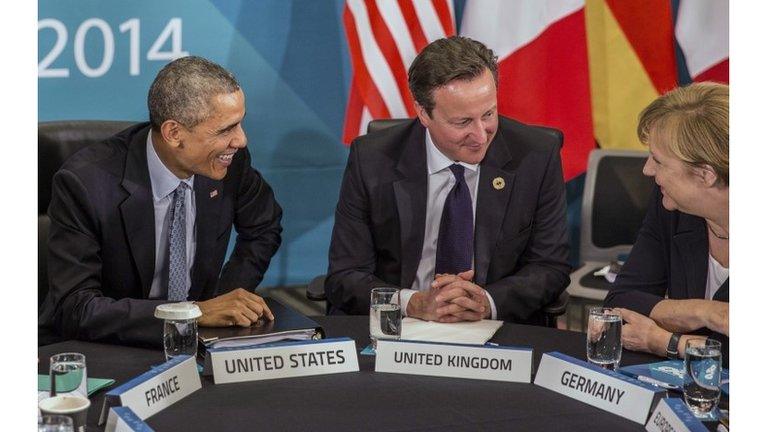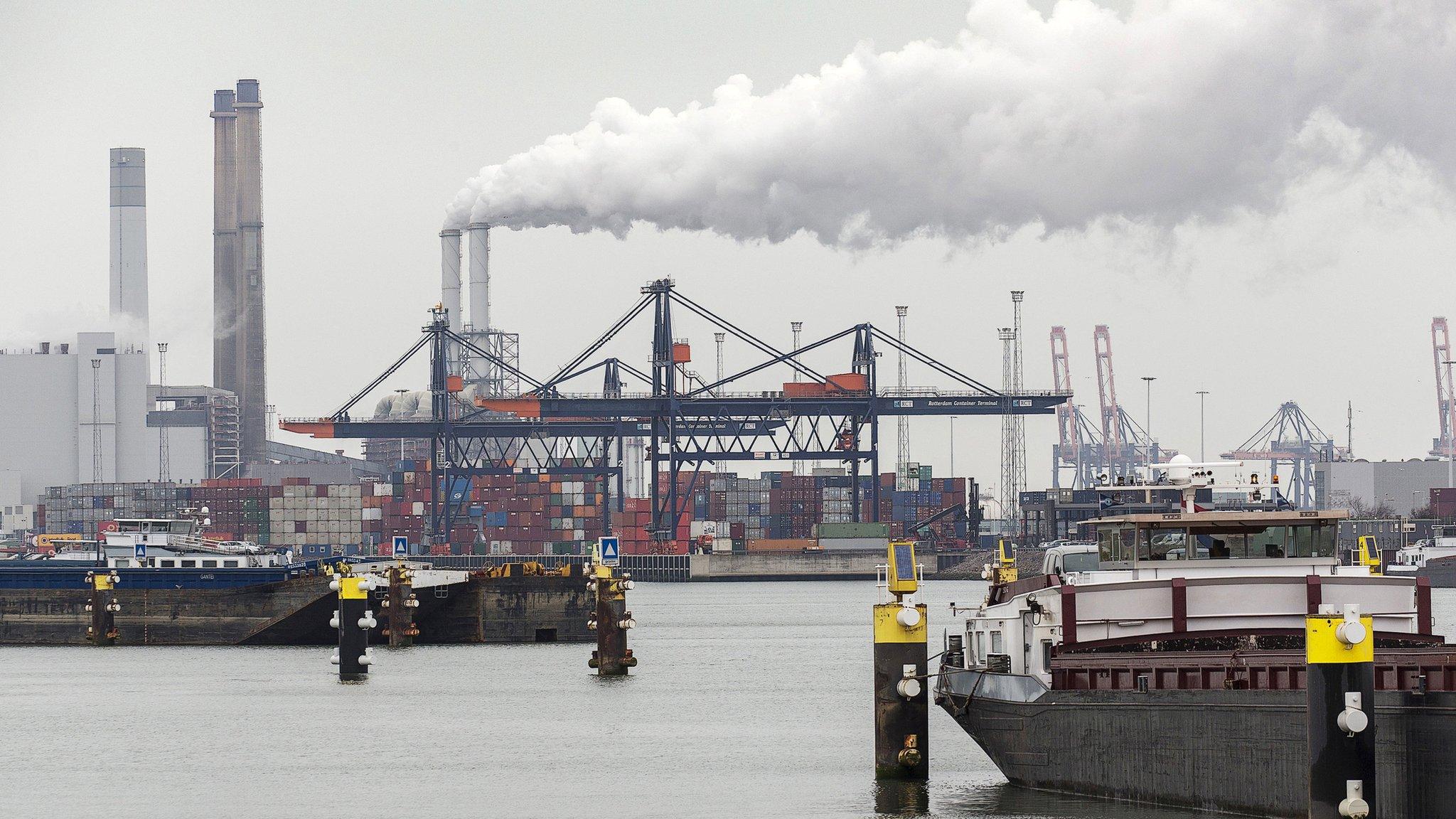Thousands challenge EU-Canada trade deal in German court
- Published

Activists say they have lodged the biggest constitutional complaint in German history
Germany's highest court is hearing a challenge to a planned EU-Canada free trade deal from some 125,000 citizens.
The organisations behind the complaint say it is the biggest constitutional complaint in German history.
They say the Comprehensive Economic and Trade Agreement (Ceta) deal violates democratic principles and will give too much power to multinational companies.
But the German economy minister says a ruling in favour of the petitioners would be "a catastrophe".
The Constitutional Court in the south-western city of Karlsruhe is due to rule on the emergency appeal on Thursday.
The deal has already been agreed after years of negotiations - but if this petition is successful, correspondents say, it is extremely unlikely to be signed as scheduled at the end of October.
Protests in Germany against transatlantic TTIP and Ceta trade deals
So who are the complainants?
Three activist groups gathered more than 125,000 signatures which they passed to the court in 70 boxes of documents in August.
They are Compact, external, Foodwatch, external and More Democracy, external.
Their legal objection to the deal is that parts of it can come into force even before national parliaments have ratified it, thus breaching the German constitution.
"Not a single parliament elected by me - neither the Bundestag nor the European Parliament - was given a mandate to negotiate for Ceta," says Roman Huber of More Democracy.
Who opposes the lawsuit?
Its most visible opponent on Tuesday was German Economy Minister and Vice-Chancellor Sigmar Gabriel.

Germany's Economy Minister Sigmar Gabriel has long fought against opposition to Ceta, and was in court on Tuesday
He has already battled to win his Social Democratic Party (SPD) round to the deal.
He told the court that a successful challenge to Ceta would undermine Germany's credibility, reported Die Welt news website, external. "I do not want to imagine what that could mean for Europe," he told the court.
What's the problem with the deal, according to the complainants?
Activists fear that the deals could water down European standards in the key areas of workers' rights, public health and the environment. They say it will open up new areas for privatisation and give corporations new powers to make profits.
They say it would give corporations the ability to sue governments through a special corporate court if they try to implement policies or regulations that could reduce the profits a company is expecting to make - for example, by increasing the minimum wage.
Opponents also point to the complexity of the deal - suggesting that many deputies won't have read the 1,500-page document in full.
Some argue that Ceta will allow many of the provisions in TTIP - the controversial Transatlantic Trade and Investment Partnership deal between the US and Europe - in through the back door.
In August, Mr Gabriel was among leading European politicians who acknowledged that opposition meant the TTIP deal was effectively dead in the water.
What next?
The court in Karlsruhe is due to rule on Thursday.
If it rejects the complaints, European ministers are scheduled to approve the deal on 18 October, paving the way for it to be signed at a summit with Canadian Prime Minister Justin Trudeau on 27 October.
But if it fails the whole process could be upended, Mr Gabriel and Ceta opponents such as the Austrian Chancellor Christian Kern agree.
Some, such as the head of Germany's Left party Katja Kipping, argue that the scale of opposition to Ceta is such that a reconsideration of the deal is warranted even if the court dismisses this complaint.


Both Ceta and TTIP attracted mass opposition in Germany - and ministers say TTIP is now effectively dead
At a glance: Ceta
Negotiations began in 2009 and ended in August 2014;
The deal aims to eliminate 98% of tariffs between Canada and EU, making it the EU's most comprehensive trade deal to date;
Signing is expected on 27 October, after which it requires ratification by the European Parliament and national parliaments;
It includes: the new Investment Court System (ICS), external; harmonised regulations; sustainable development clauses; and access to public sector tenders;
The deal is opposed by various groups, including environmental activists, trade unionists, and Austrian Socialists.

- Published17 September 2016

- Published18 December 2014

- Published29 August 2016
